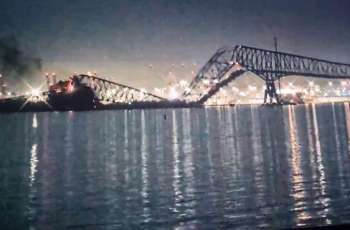LONDON (Pakistan Point News / Sputnik - 17th September, 2020) A witness for the defense told on Thursday the London Criminal Court deciding on the extradition of Julian Assange to the United States that the 1917 US Espionage Act invoked by the US government to indict the Wikileaks founder is a political tool designed to prosecute and censor dissenters.
"It is really a political tool which has been used historically to prosecute dissenters and implement censorship," US constitutional lawyer Carey Shenkman told the court via videoconference from the United States.
Shenkman, who took the witness stand remotely in the afternoon session of the hearing, claimed the act, which he described as "the most contentious law in the US" was born during the First World War, "one of the most oppressive periods in US history."
The US Department of Justice is seeking to extradite Assange on 17 espionage and one count of computer misuse, which carry a maximum sentence of 175 years in prison, for the publication of classified information on the US wars in Iraq and Afghanistan and thousands of US diplomatic cables in 2010 and 2011.
According to Shenkman, not a single US publisher has ever been indicted under the espionage law for publishing leaked material, which he said is a daily routine in the US press, often encouraged by the officials leaking it.
The witness recalled that previous attempts to prosecute publishers under this act failed, as in the case of the Pentagon papers in 1971.
During the morning session, defense witness John Sloboda, co-founder of the organization Iraq Body Count, dismissed the prosecutor's claim that Assange had taken a "cavalier attitude" towards the safety of informants whose Names were mentioned in the unredacted files.
After rejecting that assertion, Sloboda said Assange was very cautious to ensure no information that could be damaging to living individuals would be released.
The witness also highlighted that the Iraq logs leaked by Wikileaks had helped his organization, which keeps a record of civilian deaths resulting from the US-led 2002 invasion of Iraq, to record over 15,000 deaths of non-combatants that had not been previously accounted for.
The hearing to decide whether Assange should be sent to the United States resumed on September 7 at the London Central Criminal Court, after six months of delay due to the COVID-19 pandemic.
The WikiLeaks founder, who has been locked up at the maximum-security prison of Belmarsh since his arrest at the Ecuadoran embassy in London in April 2019, is attending the trial from behind a glass panel, away from his defense team.
The hearing is expected to last another two weeks, and it is highly probable that the verdict will be appealed.



